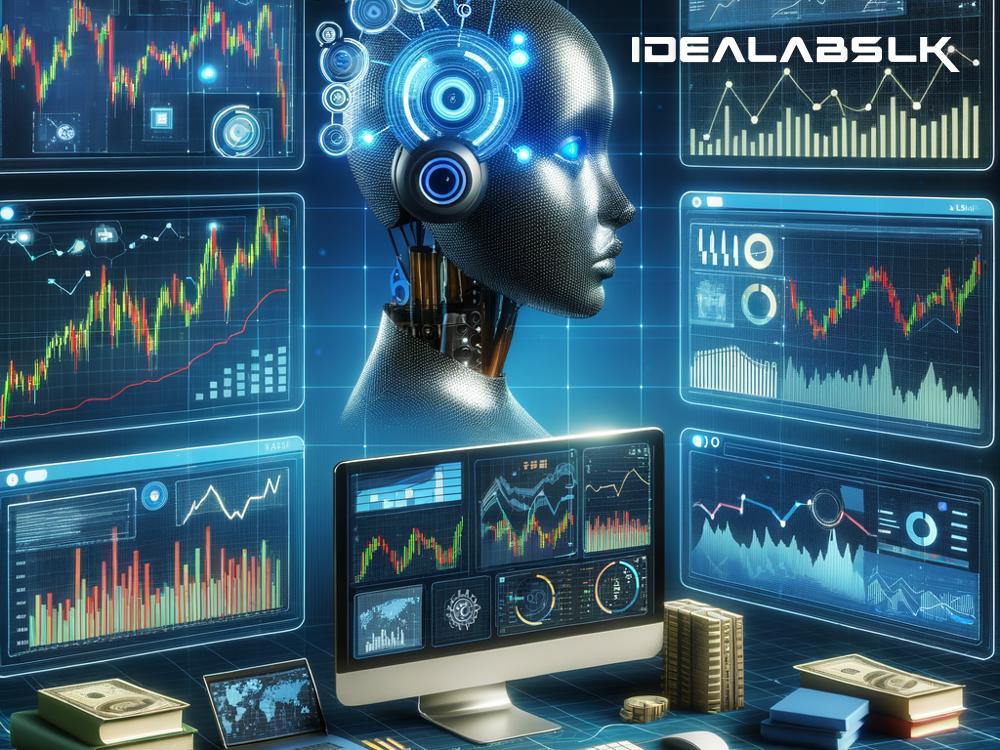AI in Trading: How AI is Transforming the Stock Market with Real-Time Data Analysis
The world of stock trading is undergoing a massive transformation, thanks to artificial intelligence (AI). Gone are the days when decisions in the stock market were made solely based on intuition or basic statistical models. Today, AI is at the forefront, revolutionizing how investors and traders analyze the market and make decisions. This shift towards AI-driven trading focuses heavily on the use of real-time data analysis, and here's how it's changing the game.
Understanding AI in Trading
At its core, artificial intelligence in trading involves the use of computer systems and algorithms to analyze vast amounts of data and make predictions or decisions without human intervention. These AI systems are designed to learn from data, identify patterns, and even adapt to new patterns over time. In trading, this capability is invaluable. The stock market generates an immense volume of data daily, from price fluctuations to news articles, and analyzing it in real-time has always been a challenge. However, AI has made this daunting task not only possible but highly effective.
The Power of Real-Time Data Analysis
Imagine trying to read and understand every news article, blog post, or social media update related to the stocks in your portfolio, all while keeping an eye on the stocks' prices, volumes, and other market data. It's impossible for a human to process all this information quickly enough to make informed decisions. This is where AI shines.
AI algorithms can digest this massive flow of information in real time, extracting relevant insights and identifying trading opportunities as they arise. This capability allows traders and investors to react swiftly to market changes, capitalizing on opportunities before they disappear. Furthermore, AI can monitor multiple data sources simultaneously, ensuring a comprehensive analysis that considers all relevant factors affecting stock prices.
Predictive Analytics and Machine Learning
One of the most exciting aspects of AI in trading is predictive analytics, powered by machine learning—a subset of AI. Machine learning models can predict future price movements based on historical data and current market trends. By analyzing patterns in the data that humans might overlook, these models provide traders with predictions about whether a stock's price is likely to go up or down.
Moreover, machine learning algorithms improve over time. They learn from their successes and mistakes, refining their predictions for better accuracy. This self-improvement capability is a game-changer, offering the potential for increasingly sophisticated trading strategies as the AI systems evolve.
Dealing with Market Volatility
The stock market is known for its volatility. Prices can swing wildly based on economic indicators, company news, or even global events. Traditionally, this volatility has made the market unpredictable. However, AI can handle this uncertainty better than human traders.
AI systems can quickly adjust their analysis based on real-time data, allowing them to navigate market volatility more effectively. By identifying patterns in how certain events affect stock prices, AI can forecast potential market movements even amidst chaos, giving traders an edge.
The Democratization of Trading
AI is not just for institutional investors or hedge funds; it's also making trading more accessible to the average person. Many online trading platforms now incorporate AI tools, providing individual investors with insights and predictions once available only to professionals. This democratization means that anyone with an internet connection and an interest in the stock market can make informed trading decisions, leveling the playing field.
Challenges and Considerations
While AI in trading offers numerous advantages, it's not without challenges. There are concerns about data privacy, ethical considerations in automated trading, and the potential for AI systems to make mistakes. Moreover, the rapid decision-making enabled by AI could exacerbate market volatility in some scenarios.
Despite these challenges, the benefits of AI in trading—especially its ability to analyze real-time data—are undeniable. As technology continues to advance, we can expect even more sophisticated AI tools to emerge, further transforming the stock market landscape.
In conclusion, the integration of AI into stock trading, particularly through real-time data analysis, is revolutionizing the industry. By offering unparalleled insights, predictive capabilities, and adaptability, AI is not only changing how trading decisions are made but also making the stock market more accessible to everyone. As we move forward, the role of AI in trading will undoubtedly continue to grow, opening new possibilities for traders and reshaping the financial world.

